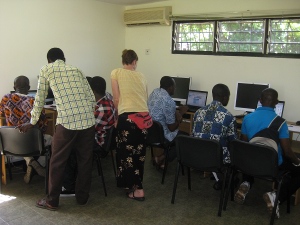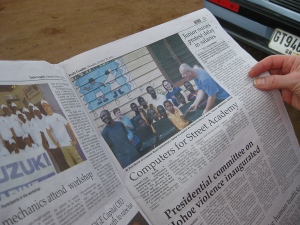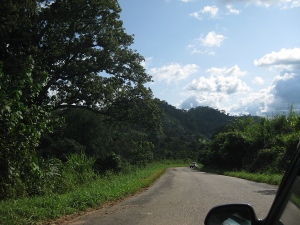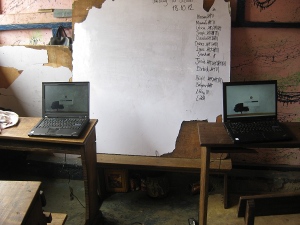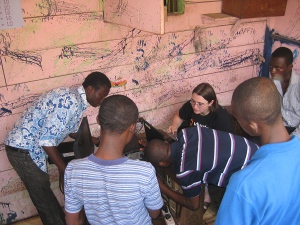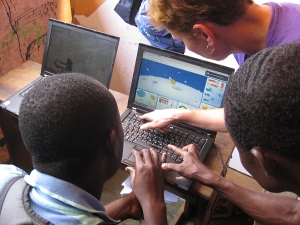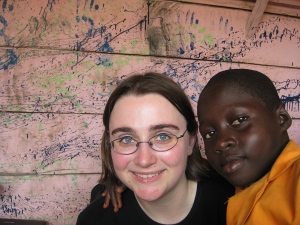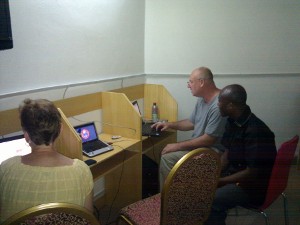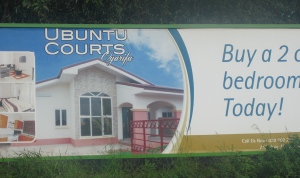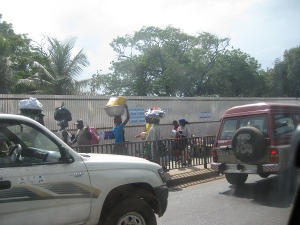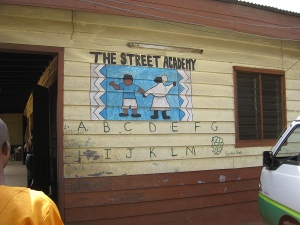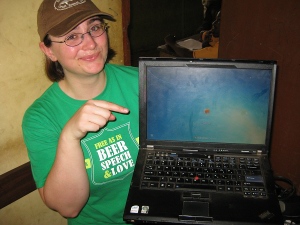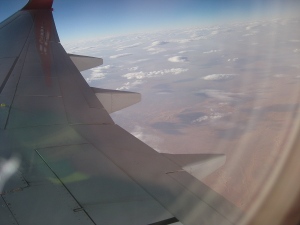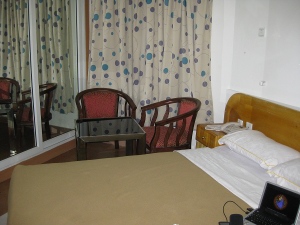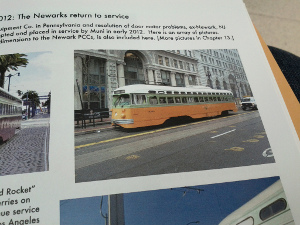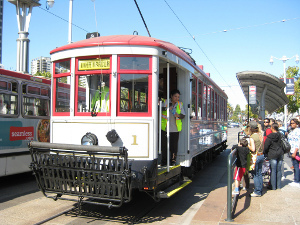Today we got up at 7AM. First up was breakfast and then a training session for some of the teachers we visited last week. The first woman who arrived taught junior high school ITC and Nancy was able to work with her one on one before others arrived. Four of the other teachers, all of whom teach senior high school, arrived together and we were able to immediately put them on the systems and get everyone started. We went through the word processor, spreadsheet and presentation applications and then on to the installed Wikipedia materials. The big win for this day was Tux Typing, it found quite the following among our attendees. In all, I’d say it went really well and was another great trial of some of the things we want to be put into a more formal training plan.
We then headed in to town to meet up with Dave and Daniel who had gone in to take care of some errands. Lunch was at a little place called White House. Like many places here in Ghana they don’t have a menu, and give you a funny look when you ask for one. We ended up just asking them to bring us lunch, which was fried rice and chicken, a pretty standard dish here.
On our way to get a taxi on to our next adventure for the day, we stopped by a news stand to pick up a couple newspapers to see if our articles about work at the Street Academy had made it in, and they did! Both the Daily Graphic:
And the Ghanaian Times covered us (photo here) in their papers in small articles with a photo. How exciting! I’ll be bringing copies home with me.
Our next adventure was to satisfy my one request during the trip: to see some animals. Ho is an hour drive from the Tafi Atome Monkey Sanctuary, home to families of Mona Monkeys.
The drive there was quite the ride, our taxi driver was aggressive and drove fast, causing some scary moments, but apparently that’s not all that uncommon. The views on the drive were stunning. I joked that “this is like Africa on TV!” since the lush vegetation reminded me of what my impressions were of this part of Africa.
Then we got to the monkeys! I was ridiculously excited about this, I love monkeys. Well aware that I hadn’t been vaccinated against Rabies, my plan was to be very cautious as one bite could end my trip here real quick. I didn’t need to feed the monkeys like the guide book suggested was possible or even get too close, just visiting them in the wild would be plenty!
It took about 2 minutes of being on the tour for one of them to jump on me. Saying I was surprised didn’t quite begin to cover it, Dave has a video which I’ll have to snag from him after we all get home. Then the bananas came out and we all got our turns to feed them, sometimes multiple at a time:
So much fun, and the tour guide assured us that they don’t bite or scratch so I felt a bit better about being around them. Aside from dirty from monkeys jumping on us we all made it out happy and unscathed, and no signs yet that some strange African monkey flu will infect everyone at the Ubuntu Developer Summit next week ;) I’m excited to upload all my photos when I get home next week, there is also one of a monkey on my head.
The ride back to the hotel was uneventful. We met for dinner around 7PM and as usual didn’t get our food until after 8PM. I really miss food coming quickly, and I miss cheese, I think I’ll order the quickest pizza I can find when I get home.
Tomorrow morning we head back to Accra.


